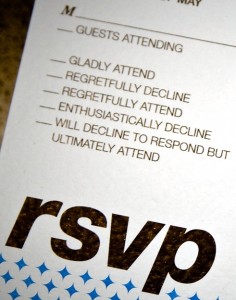“You must vote for my candidate so that my candidate’s opponent won’t win!”
The danger posed by any one of your candidate’s opponents, should that opponent win election, is in itself no premise in favor of your candidate’s election. It rather points directly to an over-investment of power in the contested office, and indirectly to the distortion imposed by an electoral system which provides (or privileges) only two choices.
“But, we can’t solve those systemic problems by participating in the election!”
If that were true, it still wouldn’t in itself argue in favor of your candidate. (Though it pains me to say, it would argue — albeit weakly — against participation altogether.)
But it isn’t true. Though outside parties and independent candidates operate at tremendous disadvantage, they aren’t illegal and they do exist and some of them are serious and deliberate and worthy of consideration and support. Their disadvantages should be removed — or, to put it in proper perspective, the privilege assigned to two parties should cease. Likewise, the concentration of power in certain offices and agencies should be dispersed, and the incentives to abdicate accountable power in exchange for privilege (political or otherwise) should cease.
None of this can be the direct result of voting in any number of contests under the present system. But the only electoral means available to weaken the power which results from, and which maintains, the privilege is to vote against both privileged parties; that should therefore be done whenever an agreeable outside or independent candidate presents herself (and, logically, also whenever there are no agreeable candidates at all). In tandem, other-than-electoral means should also be employed.
“That will take forever and could go horribly wrong. Besides, long before we got wherever you imagine us going, my candidate’s opponent would be in power!”
This is essentially applying the fallacious “too big to fail” standard to politics.
“Anyway, I agree with and applaud [all? the preponderance? most? certain?] of my party’s/candidate’s principles, platform, past performance, persona/e to the exclusion of any else.”
You must vote for your candidate, because you have good reason to do so. I don’t have good reason to vote for your candidate; in fact, I have good reason not to do so; I mustn’t vote for your candidate. We can trust or compare each other’s judgement as to the goodness of our reasons. To mistrust each other’s judgement as to the goodness of our reasons without having compared it is groundless.
“Some of your reasons not to vote for my candidate are things my candidate’s opponent asserts.”
I don’t pay much attention to the claims candidates or parties make about each other: I assume they include bias or are designed to induce bias. There may well be some overlap between my reasons and claims made by your candidate’s opponent[s]. My reasons are my reasons because I have judged them good. I do invite your comparison and critique, as my judgement must be imperfect.
“You wouldn’t be so critical if my candidate weren’t a member of Set S. Previous candidates and elects have done some of the things for which you criticize my candidate, and you didn’t criticize them so vociferously: you even voted for some of them. The only difference between them and my candidate is that my candidate is a member of Set S and those others aren’t. You despise members of Set S and want them excluded from politics and power.”
I don’t doubt that there are some people about whom all these assertions are true. The only one of them to which there is some truth in my case is expressed by the second sentence. I willingly own my previous failures to adequately criticize and oppose the faults of those others, whether those failures resulted from poor judgement or inattention. But no one’s (or everyone’s) failure to hold someone to account in the past can excuse that one or another from account in the present. And being deprived of a vote or an election isn’t, properly, a punishment.
The suggestion that I single your candidate out for criticism for any other reason than your candidate’s own deeds and your candidate’s present candidacy and your candidate’s occasional appeal to my principles is beneath my attention except to note the insult (to me and to your candidate and to Set S). I will say this, though. A future without oppression requires that those who have been oppressed also forego any opportunity to oppress others. This may seem unfair in some analyses. But at the very least the generational nature of the human condition renders any more superficially satisfying balance a vicious cycle.




